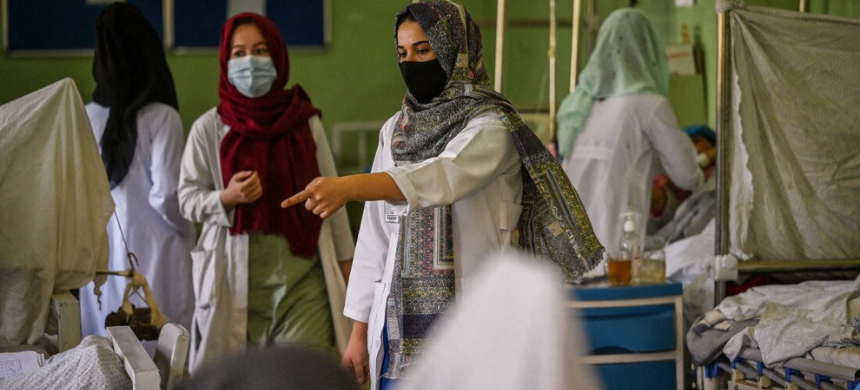The Taliban’s supreme leader, Haibatullah Akhundzada, has reportedly ordered a ban on women attending nursing and midwifery institutes, effectively closing a rare educational opportunity for women beyond the sixth grade in Afghanistan. This directive was communicated to the Ministry of Public Health on Monday, with private medical training institutes being notified shortly after. The ban, though not yet formally announced, was confirmed by government officials and nursing and midwifery students who were turned away from classes this week.
Human Rights Watch condemns the ban, warning that it will cause significant harm to women’s healthcare access, leading to “unnecessary pain, misery, sickness, and death.” Women in Afghanistan, especially in rural areas, often cannot seek treatment from male medical professionals, making female medical workers essential. The United Nations has expressed deep concern over this measure, highlighting the severe implications for women’s healthcare in the country.
This ban comes as part of the Taliban’s broader efforts to restrict educational opportunities for women. Despite these policies, some women in certain regions have still been able to attend private medical institutions, as local Taliban officials quietly overlook the rules. In February 2024, a brief exception allowed women to take nursing and midwifery courses in a handful of private institutions, primarily due to the Taliban’s acknowledgment of the need for female healthcare workers.
Read More: Rashid Khan Speaks Out Against Taliban’s Ban on Women’s Education
The decision to ban nursing and midwifery training could exacerbate the already dire healthcare situation for women in Afghanistan. Sahar Fetrat of Human Rights Watch argues that this move will worsen maternal healthcare, with Afghanistan already ranking as one of the most dangerous places for childbirth, with a woman dying every two hours due to birth-related complications.
Despite facing increasing harassment from the authorities, some educational organizations like Learn Afghanistan, which offers secret schools and maternal health clinics, have continued their operations. However, these institutions are being forced to shut down or transition to online platforms due to Taliban pressure.
Experts like Ashley Jackson of the Center on Armed Groups emphasize the need for more female healthcare professionals in Afghanistan. Despite previous allowances for women to pursue medical training under the Taliban, the group’s strict ideology, led by Akhundzada, now takes precedence over pragmatic policies to address the country’s healthcare needs.
In response to these ongoing human rights abuses, the International Criminal Court (ICC) has been investigating allegations of gender persecution in Afghanistan, with its chief prosecutor, Karim Khan, expressing confidence that significant progress will soon lead to accountability for Taliban officials responsible for these actions.











